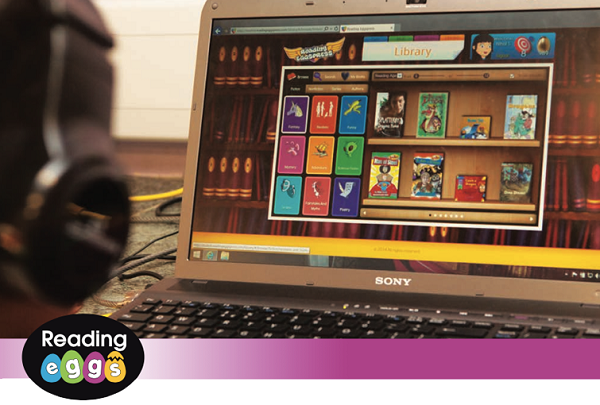
Online literacy programmes continue to be improved, and most supply diagnostic information. The comprehensive programmes analyse learners’ progress and provide automatic reinforcement, and alert the teacher to any difficulties.
Last April, the Ministry of Education (MoE) launched a free online literacy tool for secondary students, Pathways Awarua, an interactive online resource which students can access from school and home. Teachers, parents and families can also view the students’ progress.
When teachers register with Pathways Awarua there are online modules available to help make the most use of the resource. Once these are completed they have full access to the site and can begin registering their students.
The reading and writing pathways are linked to three collections, with the lowest collection providing support to learners with the most significant literacy needs.
School News spoke with three specialists catering to New Zealand schools for their opinions on choosing digital literacy resources.
“All good resources need to be flexible enough to cater for individuals, pairs/groups or whole-class use. They should be used as a teacher tool – not to replace teaching, but to support it.
“A key feature of a good programme is that a teacher can easily manage students working at their own level – even if all 30 of your learners are on different levels!
“Programmes are now starting to provide more diagnostic information and the best programmes analyse learners’ progress and provide automatic reinforcement, as well as alerting the teacher to any difficulties.
There needs to be more structure and continuity within schools. Schools need a literacy progression which goes right the way through the school, so learners are following a structured course, which includes core reading/spelling knowledge, basic grammar, vocabulary and some aspects of language development. This needs to run alongside reading programmes and all the other aspects of the literacy curriculum, but can support those aspects as needed. Teachers need to be able to customise a programmes to support teaching areas, or to address individual needs.
Online software enables students to benefit from programmes with frequent content updates. It is easier than ever for schools to meet the needs of all students at the same time and enhance student learning and engagement by using online software with features such as modern graphics, instant feedback, and up-to-date student dashboards for students to self-monitor their progress.
“Teachers should choose programmes that scaffold to provide practice and instruction based on each student’s answers. This provides personalised learning paths while saving teachers’ time as they don’t need to assign specific lessons to each student.
“Students need to be given adequate time if they are to benefit from any online programme. For best results, teachers should regularly monitor the live on-line student data, and respond to any additional support resources or instruction recommended.”
“When a school is choosing an online literacy programme, consider what it can do for the student’s learning other than what it can get from a library book. Does it truly offer something unique that can engage students with their reading? Does it provide a good balance of student agency and teacher-driven learning? And look at whether the programmes provides enough extra resources so that savings are made in other areas of the school.
“Look also into whether the programme is based on solid scientific research. Online literacy programmes should contain essential keys to reading success with focus on a core curriculum of phonics and phonemic awareness, sight words, vocabulary, comprehension, and reading for meaning.”
A new report from the University of Auckland’s Our Voices Project asks young people what…
The government has opened a tender for new standardised assessment tests, leaving educators shocked and…
Early in her career, Kiri Turketo found inspiration in an unlikely source. In this Principal…
Real stories of dedication, challenges, and triumphs from educators in NZ. Part six comes from…
Is fast furniture impacting your school's environmental footprint? We explore eco-friendly solutions to reduce furniture…
A new report from the New Zealand Initiative argues we need a stronger and clearer…
This website uses cookies.